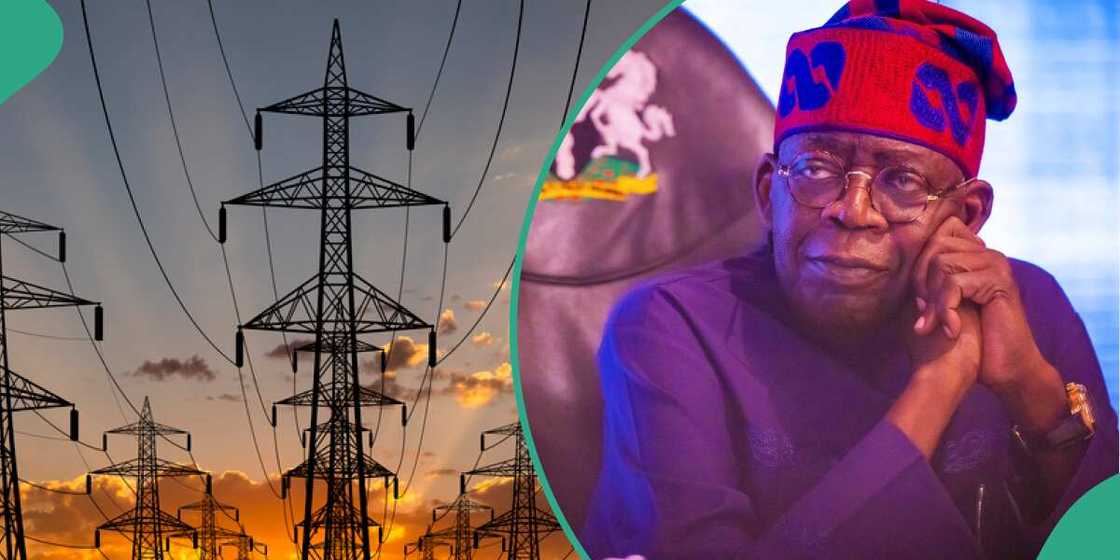FG Gives New Condition to Achieving Stable Power Supply in Nigeria
- The federal government has called for the need to improve the capital base of Nigerian electricity companies
- It stated that a lot of the citizens now rely on generators to power their households and businesses due to unstable power supply
- It also noted that only 4,000 megawatts out of 13,000 megawatts are supplied to residences and commercial buildings in the country
Legit.ng journalist Zainab Iwayemi has over three years of experience covering the Economy, Technology, and Capital Market.
Nigerian electricity companies need new investors to revitalise the industry as they are now short of an estimated N2 trillion ($2.5 billion) in capital.
In an interview, Olu Verheijen, an adviser to President Bola Tinubu on energy, said the companies are over-leveraged and under-capitalised.

Source: UGC
The issues with electricity in Nigeria

Read also
Marketers speak on petrol price crash in 2024 as Port Harcourt Refinery, others commence operations
According to Bloomberg, due to poor pricing, inconsistent revenue collection, and a decaying national system, most people in the most populous country in Africa now generate their electricity with loud generators.
A case study is Lagos, a metropolis with 25 million residents that receives 1,000 megawatts of power from the grid.
In comparison, Shanghai, which has a population of around the same, can supply over 30,000 megawatts during periods of high demand.
Out of Nigeria's 13,000 megawatts installed capacity for energy generating, only 4,000 megawatts are supplied to residences and commercial buildings.
On the other hand, South Africa, whose population is only one-third that of Nigeria and whose economy was severely damaged by nearly constant power outages last year, has roughly 52,000 megawatts of capacity.
Out of this, three-quarters comes from an indebted state-owned utility operating outdated plants.
Need for recapitalisation
Verheijen called for the need to set policies that facilitate reorganisation and recapitalisation and bring in new partners with new capital.
He explained that plans for cost-reflective energy pricing will accompany recapitalisation, enhancing the power sector's viability and liquidity.
In 2013, the government privatised generation and distribution while the Nigeria Electricity Regulatory Commission, a government-controlled body, set the tariff.
The government subsidises power companies by making up the difference between what they charge and what it costs to distribute electricity. Power companies are not permitted to charge more than this.
According to the regulator, without a rate revision, the regulator predicts that energy subsidies will increase to N1.6 trillion this year from N600 billion in 2023 and rising inflation.
Verheijen said:
“With the current tight fiscal space, the government’s ability to cover this shortfall is challenged. These issues have exacerbated the financial liquidity challenges in the sector.”

Read also
Year in review: Cash scarcity and other 10 events that made life difficult for Nigerians in 2023
Ex-Power minister Barth Nnaji speaks on cabal benefitting from poor electricity supply in Nigeria
Legit.ng reported that Barth Nnaji, a former minister of power, has alleged fuel suppliers and generator sellers are sabotaging efforts to ensure Nigerians have consistent access to power.
He made the claim while participating in "The South East Political Roundtable" on Flo FM in Umuahia, Abia State.
According to the former minister, the ongoing failure of the national grid remained a significant source of concern for Nigerians.
PAY ATTENTION: Unlock the best of Legit.ng on Pinterest! Subscribe now and get your daily inspiration!
Source: Legit.ng


